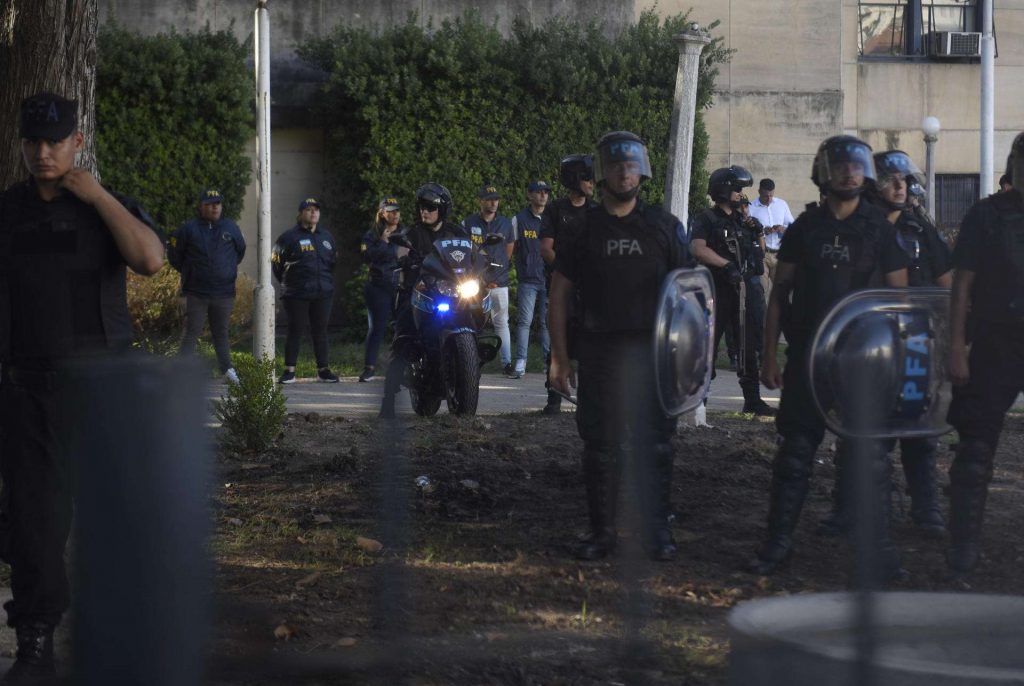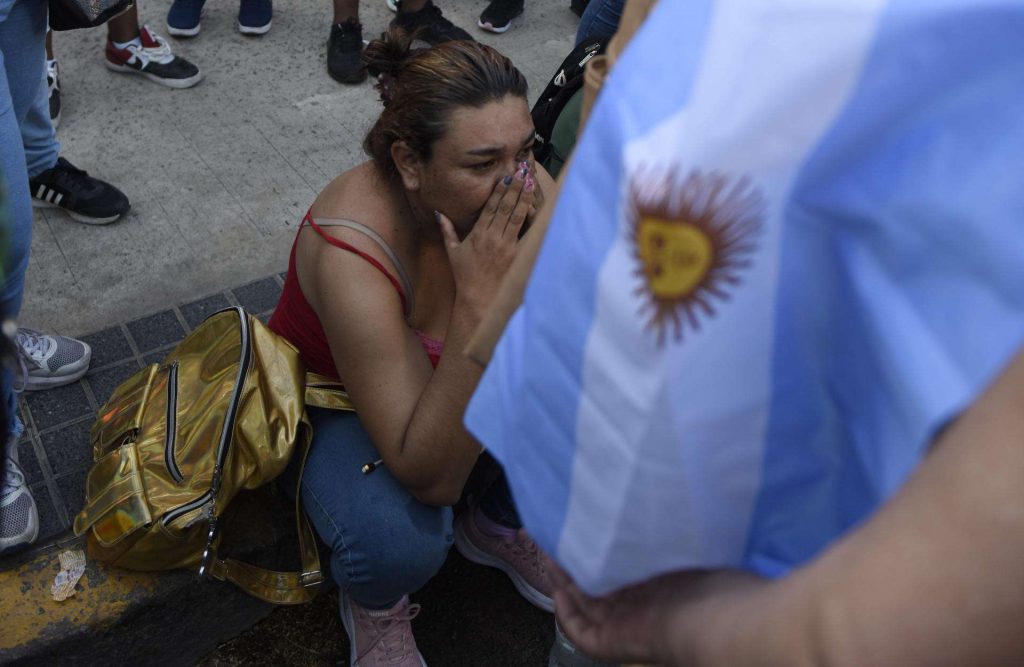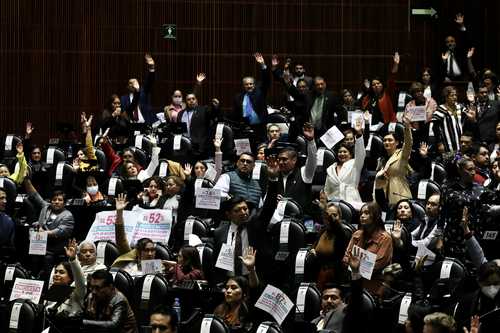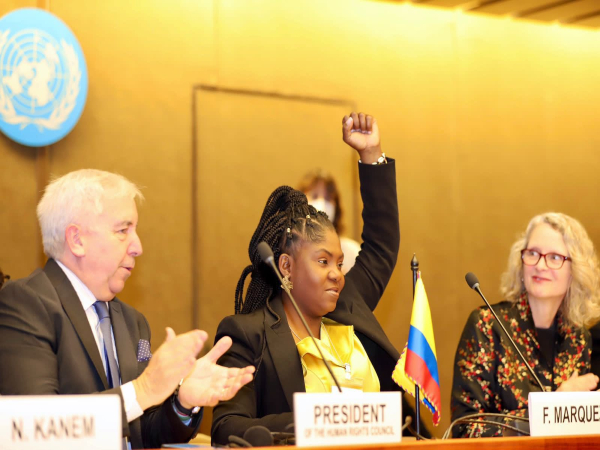The Vice President of Argentina, Cristina Fernández de Kirchner, along with other officials and a businessman, was sentenced this Tuesday for corruption in the allocation of public works in the province of Santa Cruz during the period from 2003 to 2015.
As vice president, Fernández has a mandate until December 10, 2023 and therefore has privileges that make her immune to a conviction that, in any case, must be confirmed by other judicial instances to take effect.
This is a central political event in Argentina both because of the role of the main defendant and because of the use that the opposition and a large part of the media system have made of the case. These are the five questions to ask yourself now:
1. What does the judgment say?
Federal Oral Court number 2 sentenced the vice president to 6 years in prison and perpetual disqualification from holding public office for fraudulent administration to the detriment of the Public Administration.
Along with her, seven other defendants were sentenced, including former officials and Lázaro Báez, the businessman allegedly benefited. This is the so-called “Road Cause” in which the government —of Néstor Kirchner first and of Cristina Kirchner later— is accused of having favored Báez, a public works entrepreneur in construction projects, through budget laws and exceptional budget items. construction of roads and bridges. According to the advance of the arguments, “promiscuous and corrupt links between public administration officials (national and provincial) and the State contractor companies belonging to the aforementioned business group (Austral Construcciones)” were proven.
2. How does the judicial process continue?
Fernández and the rest of the convicted can appeal to the higher instance, an appeal that can then be submitted to the Supreme Court of the Nation. Until then, the vice president will not go to prison because the sentence will not be final. The appeals process can take several years.
As long as there is no final sentence, the sentence will not be executed and this also applies to the confiscation of 84 billion Argentine pesos that the judges set among the convicted. On March 9, the Court will announce the arguments of the sentence that was known yesterday. Thereafter the parties may appeal. Cristina Fernandez’s defense will do it.
For their part, prosecutors Diego Luciani and Sergio Mola announced that, in turn, they will also appeal. The sentence has not been strict enough according to them. They are going to insist with the figure of “illicit association” dismissed by the jury and that would increase the sentence.
3. What can happen with the verdict?
Although the sentence implies that Cristina Fernández will not be able to hold elective public office, since she is not firm (that is, since there are still appeals instances), Cristina could stand for the 2023 presidential elections. However, in a statement broadcast live After the verdict was announced, the vice president announced that she would not run for any position (“neither for president, nor for senator or deputy”) in an attempt to challenge those who, according to her, seek to “outlaw” her. CFK targets certain businessmen (especially the CEO of Grupo Clarín, Hector Magnetto) linked to the political opposition (especially former President Mauricio Macri) and the federal judicial corporation.
The ruling of the Federal Oral Court was experienced as a true political fact by both the opposition and by supporters of Fernández (twice president).
The buildings of the national Judiciary were surrounded by thousands of Kirchner protesters. The center of Buenos Aires was occupied with large mobilizations in a context of confrontation and questioning of the service of justice in Argentina. The movement was increased by the revelation, days ago, that a group of judges, prosecutors and opposition officials were invited by the largest newspaper in the country (Clarín) to a vacation at the mansion of magnate Joe Lewis in Patagonia.
All in all, Fernandez de Kirchner’s announcement to abstain from the upcoming elections caused great confusion among Peronist militants and a feeling of emptiness: the government of Alberto Fernandez is increasingly lacking in popular support and no strong leadership comparable to Cristina’s is looming. on the move.
4. Who defends the ruling?
The ruling has been celebrated from different opposition political spaces. The mayor of the City of Buenos Aires for the PRO, Horacio Rodríguez Larreta, pre-candidate for president, considered it “a historic ruling”, since “it was impunity or justice; and justice was served.” Other members of the same political space, such as former Security Minister Patricia Bullrich, considered that as long as “the money that was stolen is not returned, there will be no justice.” For his part, Cristian Ritondo, pre-candidate for Governor for the Province of Buenos Aires (the largest electoral district in the country), questioned the president’s announcement that she will not stand for election: “I think that nothing Cristina says can be taken seriously,” he said.

5. Who opposes the ruling?
“It is the result of a trial in which the minimum forms of due process were not taken care of,” President Alberto Fernández wrote on his social networks on Tuesday night. In addition, he expressed his solidarity with the vice president: “I know that she is the victim of an absolutely unfair persecution,” he said.
The defendant’s defense centered her argument on the fact that the objected works were approved by a law of the National Congress voted by the ruling party and the opposition, and that the constitutional attribution of ensuring the execution of the budget corresponds to the Chief of Staff, Not to the Presidency.

On December 5, the former Spanish judge Baltazar Garzón, consubstantiated with the Argentine reality for the cases of Human Rights violations, published an open letter to the jury asking its members to refrain from sentencing, since “there has been no respect for the guarantees, the evidence is contaminated, there has been theft and alteration of the same, the witnesses have been venal, the expert reports manipulated”.
The former judge of the Inter-American Court of Human Rights Eugenio Zaffaroni, who for some time has denounced the practice of lawfare in Argentina as a strategy of political persecution through compulsory and systematic judicialization, has been demonstrating in the same direction.






